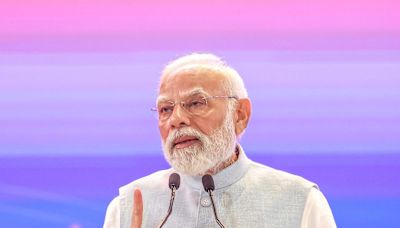Second-Gen Facility Using Agri-Waste to Support 20% Ethanol Blending, Cut Oil Imports, and Boost Farmer Incomes
Published on: November 08, 2025
By: BTNI
Location: Udupi, India
Prime Minister Narendra Modi on November 8 inaugurated India’s largest second-generation (2G) ethanol biofuel plant in Madhya Pradesh, marking a major milestone in the nation’s clean energy transition. Designed to process rice straw and agricultural biomass, the plant will play a pivotal role in achieving the national target of 20% ethanol blending in petrol by 2025–26, significantly reducing India’s dependency on imported crude oil.
With an impressive production capacity of 500 KLPD (kilolitres per day), the facility is expected to save thousands of crores of rupees annually in oil imports. More importantly, it is structured to purchase agricultural residue directly from farmers, transforming waste materials—often burned in open fields—into a valuable and repeatable economic resource. This step is set to increase farm income, reduce crop-burning incidents, and lower air pollution levels, especially in northern regions such as Delhi-NCR, where stubble burning has historically worsened winter smog and AQI levels.

Madhya Pradesh Chief Minister Mohan Yadav, who addressed the gathering, called the plant “a national model for sustainable energy and farmer prosperity.” He emphasized that the state is aligning climate action with rural economic growth, linking the initiative with other developmental programs including school uniform assistance worth ₹330 crore for 55 lakh students, tiger conservation tracking via app-based census tools, and expanded livelihood programs in forest zones.
The inauguration comes at a time when Madhya Pradesh—known as the ‘Tiger State’—is preparing for the 2026 All-India Tiger Census, where researchers will deploy DNA-based monitoring technologies for the first time. Officials say sustainable industrial development, forest conservation, and eco-tourism are being synchronized to create long-term environmental stability.
The plant also ties into international investment dialogues, from which Madhya Pradesh recently secured ₹11,119 crore in proposals across food processing, renewable energy, agro-industries, and rural infrastructure. Yadav also honored families of organ donors, recognizing their contribution to public health and social welfare.
However, the event also brought attention to ongoing healthcare challenges in certain districts, including recent cases of rat-bite incidents in government hospitals, prompting the administration to order stricter sanitation audits and improvements in rural health facilities.
Also read- https://www.btnewsindia.com/grand-conclusion-of-annual-sports-festival-at-gayatri-vidyapeeth/ https://www.btnewsindia.com/chhattisgarh-mourns-the-passing-of-renowned-playback-singer-and-actress-sulakshana-pandit/
Environmental experts say the biofuel plant represents a strategic shift in India’s approach to renewable energy—moving from sugarcane-based ethanol (first-generation) to agricultural residue, which does not compete with food supply or crop productivity. The facility is also expected to create local employment opportunities in logistics, processing, and supply chain management.
As winter sets in with clear skies and cooler temperatures, the inauguration has energized hopes of cleaner air, stronger rural economies, and reduced dependence on foreign oil, positioning Madhya Pradesh as a key player in India’s green industrial future.




